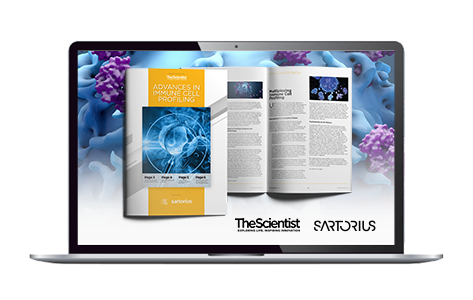
Advances in Immune Cell Profiling
Profiling immune cells can help us understand how they impact cancer prognosis and responsiveness to treatment


Tumor responsiveness to treatment is influenced by the immune cell profile. T cell profiling can determine gene and protein expression to distinguish between naïve, regulatory, cytotoxic, and exhaustion phenotypes. Assessing T cell populations at the tumor core and margins by identifying biomarkers may be more effective when deciding on patient prognosis than the common tumor staging techniques. Profiling cytokine release is also important in identifying the effector functions of immune cell subsets. By monitoring patient samples for T cell biomarkers and analyzing the effectiveness of treatments in the lab, scientists gain a better understanding of the interplay between cancer and the immune system.
Download this original eBook from The Scientist's Creative Services Division to learn more about:
- The role of the immune system in cancer
- Multiplexing immune cell profiling
- Compiling immune cell phenotypes
- High-throughput profiling